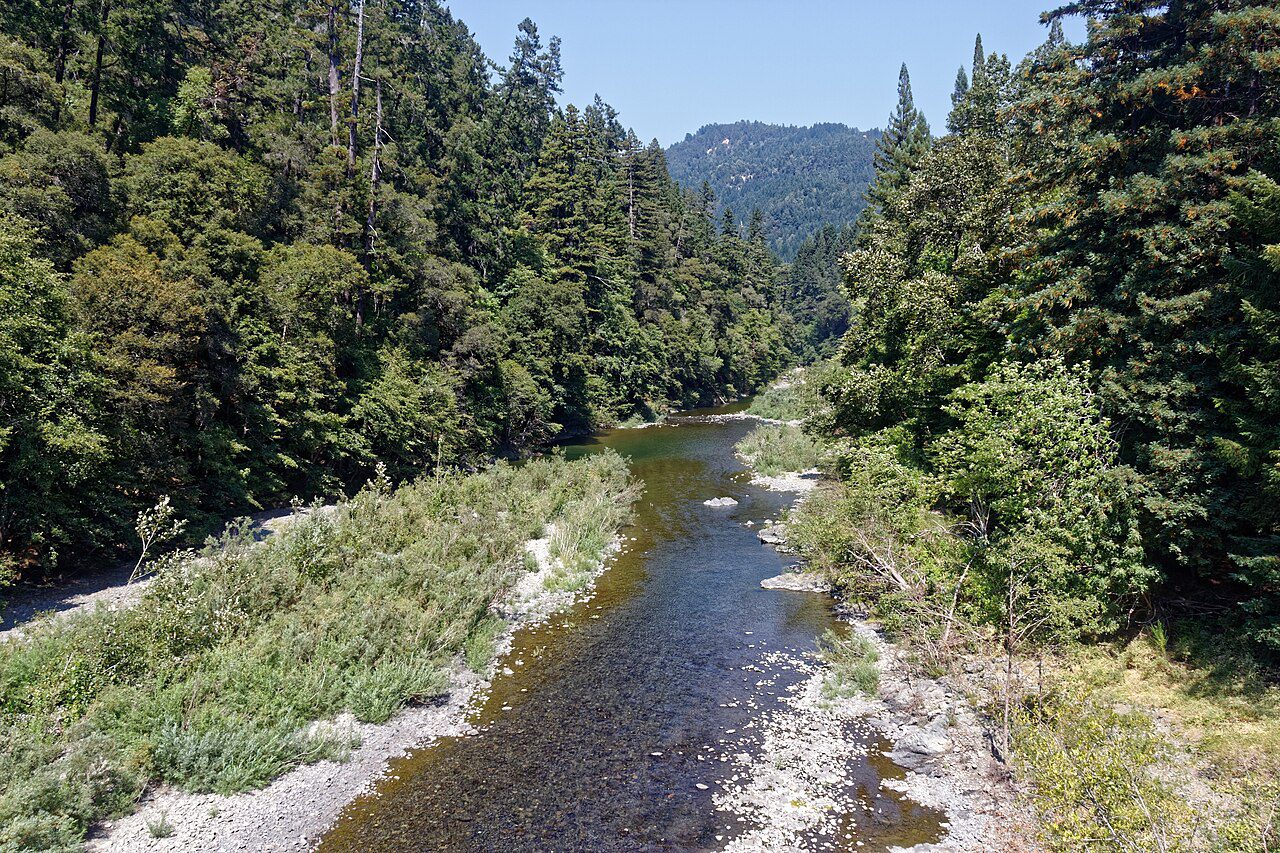- Court finds county fulfilled its duty under the public trust doctrine.
- Friends of the Eel River’s mandamus and declaratory claims denied.
- Decision affirms county’s discretion in managing Eel River groundwater.
Monday, October 27, 2025 — In a detailed 10-page ruling filed September 29, 2025 , Humboldt County Superior Court Judge Kelly Neel rejected a lawsuit by the nonprofit Friends of the Eel River (FOER). The case, first filed in 2022, challenged Humboldt County’s handling of groundwater extraction in the lower Eel River Basin
, Humboldt County Superior Court Judge Kelly Neel rejected a lawsuit by the nonprofit Friends of the Eel River (FOER). The case, first filed in 2022, challenged Humboldt County’s handling of groundwater extraction in the lower Eel River Basin . FOER alleged the county failed to meet its legal duty to protect public trust resources, particularly during the dry months of late summer and early fall, when river flows drop and conditions can harm migrating salmon.
. FOER alleged the county failed to meet its legal duty to protect public trust resources, particularly during the dry months of late summer and early fall, when river flows drop and conditions can harm migrating salmon.
The nonprofit sought a declaratory judgment requiring the county to create a groundwater regulation program and to stop approving new or expanded wells until compliance with the public trust doctrine was ensured. It also sought writs of mandamus to compel the county to act.
Court Analysis: The Public Trust Doctrine.
Judge Neel began by reviewing the origins of the public trust doctrine, which dates back to Roman law and requires the state to act as trustee of waterways for the public’s benefit. In California, this doctrine applies to tidelands, navigable lakes, and streams and extends to related uses such as navigation, fishing, recreation, scientific study, and wildlife habitat.
However, Neel emphasized that the doctrine is “inherently discretionary” and does not demand absolute protection in every instance. She cited several appellate decisions, noting that the law does not prescribe a fixed checklist of factors a local agency must follow. Instead, governments must balance many interests—commerce, recreation, agriculture, habitat, and human use—when managing water resources.
Declaratory Relief Denied.
FOER had argued that the county failed to evaluate groundwater extraction impacts during specific dry seasons. But the judge found the county had already fulfilled its duty of consideration through its 2022 Eel River Valley Groundwater Sustainability Plan (GSP). That plan, developed under the state’s Sustainable Groundwater Management Act, includes monitoring, data collection, and sustainability metrics.
Judge Neel wrote that FOER’s complaint “essentially contests the effectiveness” of the county’s efforts and that declaratory relief cannot be used to tell an agency how to do its job. The county, she said, had considered groundwater impacts in its plan, even addressing Chinook salmon, though perhaps not the exact life stages FOER would have preferred.
Mandamus Also Rejected.
The court also denied FOER’s request for a traditional writ of mandamus. Such writs compel officials to perform a ministerial duty—one that leaves no room for discretion. Judge Neel held that public trust management is by nature discretionary, requiring judgment and balancing of competing interests.
“Balancing these factors and selecting a course of action is the essence of discretion,” she wrote, concluding that the county had indeed exercised that discretion by preparing and implementing its groundwater plan. The court emphasized that Humboldt County’s stated goal—“to maintain high-quality and abundant groundwater resources in the Basin to support existing and long-term community needs without causing undesirable results”—demonstrated compliance with its duties.
Ongoing Responsibility.
Although FOER’s claims were denied, Judge Neel noted that Humboldt County retains a continuing duty of supervision under the public trust doctrine. The county must prepare annual reports on basin conditions and update its groundwater plan every five years. If those reports show that groundwater extraction is harming public trust resources, the county may be required to act.
However, she rejected FOER’s demand that the county inventory and assess all existing wells individually, calling that an “enormous undertaking.” The judge concluded that Humboldt County’s broader, science-based approach meets its current legal obligations.
The Outcome.
The court denied FOER’s petition in full, finding that Humboldt County had already considered the impacts of groundwater extraction on the Eel River through lawful, discretionary processes. The decision reinforces that while local governments must weigh public trust values, courts will not micromanage how they do so.
reinforces that while local governments must weigh public trust values, courts will not micromanage how they do so.
Image: Highway CA1 crossing the South Fork of the Eel River , August 2017, by Dirtsc. Licensed under the Creative Commons Attribution-Share Alike 3.0 Unported license.
, August 2017, by Dirtsc. Licensed under the Creative Commons Attribution-Share Alike 3.0 Unported license.
FAQ
What is the public trust doctrine?
It is a legal principle requiring government entities to manage natural resources such as waterways and fisheries for the public’s benefit, balancing ecological, economic, and recreational interests.
Why did the judge rule against Friends of the Eel River?
The court found the county had already met its obligations under the public trust doctrine through its 2022 groundwater plan and related permitting processes. FOER’s complaint essentially challenged the county’s methods, not a failure to act.
Does this mean the county can ignore environmental impacts?
No. The court reaffirmed the county’s ongoing duty to monitor and update its management of groundwater and to address any future evidence of harm to the Eel River ecosystem.
Can Friends of the Eel River appeal?
Yes. The organization may appeal to the California Court of Appeals, but as of the filing date, no appeal had been announced.
What happens next?
Humboldt County will continue to monitor groundwater under its sustainability plan, with its next update expected within the next 18 months. The case is likely to influence how other counties apply public trust principles to groundwater management.





